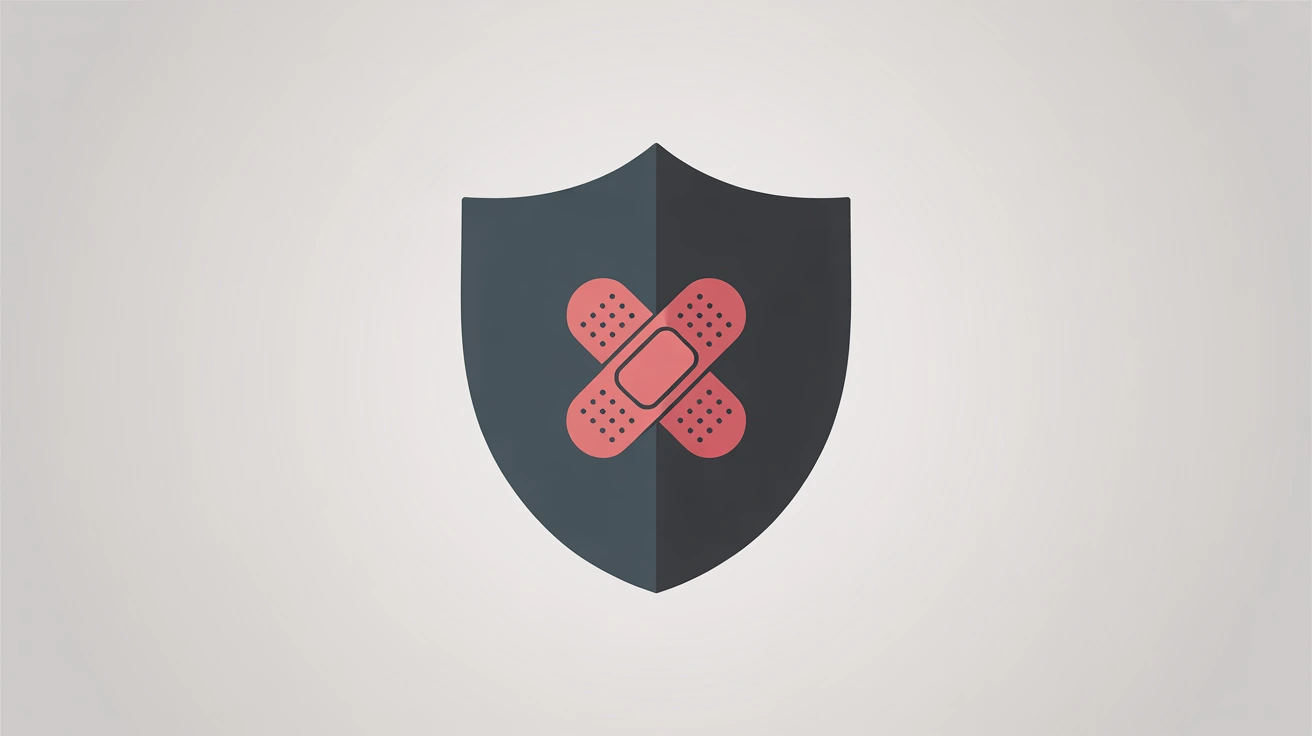
Accident Insurance in Switzerland (UVG/LAA) — Guide for Employees
Key Facts — Accident Insurance (UVG/LAA)
- Employees are covered by employer accident insurance: BU (work) and, if ≥8h/week, NBU (leisure)
- BU premium paid by employer; NBU premium usually deducted from salary
- If you work ≥8h/week, you can exclude “accident” from your health insurance to avoid double paying
- After employment ends, NBU usually continues 31 days (Nachdeckung); consider Abredeversicherung to extend up to 6 months
Unsure if you’re double‑covered? Get a free check: /free-consultation
Introduction: Understanding Accident Insurance in Switzerland as an Expat
When relocating to Switzerland, understanding the local insurance landscape is crucial. Beyond the well-known mandatory health insurance, another vital component is accident insurance. Switzerland has a comprehensive system designed to protect individuals in case of accidents, both at work and during leisure time. This guide is tailored for expats to help them navigate the Swiss accident insurance system, known by its German abbreviation UVG (Unfallversicherungsgesetz) or French LAA (Loi sur l’assurance-accidents).
We will explore what accident insurance covers, who is obligated to have it, the distinction between occupational and non-occupational accidents, and how it integrates with your employment and overall well-being in Switzerland. Knowing these details will ensure you are adequately covered and can confidently enjoy your time in this beautiful country. For an overview of mandatory insurances, see our new arrivals checklist.
What is Swiss Accident Insurance (UVG/LAA)?
Swiss Accident Insurance (UVG/LAA) is a mandatory insurance for all employees working in Switzerland. It provides financial protection and medical coverage in the event of accidents. The key objective is to cover the costs associated with medical treatment, loss of income due to temporary or permanent disability, and, in the worst case, death benefits for survivors.
Unlike basic health insurance, which individuals typically arrange themselves, accident insurance is usually arranged and paid for (at least in part) by the employer.
Who is Covered by Mandatory Accident Insurance?
Generally, all individuals employed in Switzerland are covered by mandatory accident insurance through their employer. This includes:
- Full-time employees
- Part-time employees
- Apprentices
- Trainees
- Individuals working from home for a Swiss employer
Self-employed individuals, unemployed persons, pensioners, students, and homemakers are generally not covered by the employer-based UVG/LAA and must ensure they have accident coverage through their mandatory health insurance (which usually covers accidents unless specifically excluded or if the person is covered via UVG/LAA) or a private accident insurance policy.
Occupational vs. Non-Occupational Accident Insurance
A crucial distinction within the Swiss accident insurance system is between occupational accidents (Berufsunfall - BU) and non-occupational accidents (Nichtberufsunfall - NBU).
Occupational Accidents (Berufsunfall - BU): These are accidents that occur while performing professional duties or during work-related activities. This also includes accidents happening on the direct way to and from work. The premium for occupational accident insurance is fully paid by the employer.
Non-Occupational Accidents (Nichtberufsunfall - NBU): These are accidents that occur outside of working hours and work-related activities – essentially, during your leisure time. This could include accidents during sports, at home, or during your commute if it is not directly work-related (e.g., a significant detour).
Employees who work at least 8 hours per week for the same employer are also mandatorily insured against non-occupational accidents through their employer. The premium for NBU is typically deducted from the employee’s salary.
Employees working less than 8 hours per week for an employer are covered for occupational accidents and accidents on the direct way to and from work, but not for other non-occupational accidents. They need to ensure they have accident coverage through their basic health insurance (which is usually the case unless they explicitly excluded it, thinking they were covered by UVG/LAA for NBU).
What Benefits Does Accident Insurance Provide?
Swiss accident insurance (UVG/LAA) provides a range of benefits, which can be broadly categorized as follows:
-
Medical Treatment: Coverage for all necessary medical treatments resulting from an accident. This includes doctor visits, hospitalization (general ward), medication, therapies, and any required medical aids.
-
Daily Allowance (Taggeld): If an accident leads to temporary incapacity to work, the insurance provides a daily allowance. This typically amounts to 80% of the insured person’s last earned salary, starting from the third day after the accident (the first two days are usually covered by the employer).
-
Disability Pension (Invalidenrente): In cases of permanent disability resulting from an accident, the insurance provides a disability pension. The amount depends on the degree of disability and the insured salary.
-
Integrity Compensation (Integritätsentschädigung): A lump-sum payment may be provided in cases of significant and permanent impairment to physical, mental, or psychological integrity due to an accident.
-
Survivor Pension (Hinterlassenenrente): In the unfortunate event of a fatal accident, the insurance provides pensions to the surviving spouse and children.
-
Funeral Costs: A contribution towards funeral expenses may also be covered.
How Does It Work for Expats?
For expats employed by a Swiss company, the process is generally straightforward:
-
Enrollment: Your employer is responsible for enrolling you in the mandatory accident insurance (both BU and, if applicable, NBU).
-
Premiums: BU premiums are paid by the employer. NBU premiums are usually deducted from your salary.
-
In Case of an Accident: You must immediately inform your employer about any accident, whether it occurred at work or during leisure time (if NBU is covered). Your employer will then handle the necessary declarations to the insurance company.
-
Medical Bills: Typically, medical bills related to the accident will be sent directly to the accident insurer, or you may need to pay them first and then claim reimbursement.
Important Considerations for Expats:
-
If you work less than 8 hours/week: Clarify your non-occupational accident coverage. You will likely need to ensure this is covered by your basic health insurance by not excluding accident coverage when you sign up.
-
If you are self-employed or not working: You are responsible for ensuring you have adequate accident coverage. This is usually included in your mandatory basic health insurance. Check your policy details.
-
Cross-border commuters (Grenzgänger): Special rules may apply, and it is essential to understand your coverage based on your employment contract and country of residence. Our cross-border insurance guide may be helpful.
What if I Leave My Swiss Employer?
If your employment in Switzerland ends, your UVG/LAA coverage also typically ends. Specifically:
- Coverage for occupational accidents ceases on the day you leave your job.
- Coverage for non-occupational accidents (if you were working more than 8 hours/week) continues for a limited period, typically 31 days after your last day of salary payment. This is known as Nachdeckung or extended coverage.
After this period, you are no longer covered by your former employer’s accident insurance. It is crucial to ensure you have alternative accident coverage in place, either through a new employer or by including accident coverage in your mandatory Swiss health insurance policy. If you become unemployed and register with the Regional Employment Center (RAV), you will be insured against accidents through the unemployment insurance fund, but only if you are entitled to daily unemployment benefits.
To bridge any gaps, especially if you are between jobs or leaving Switzerland, you can opt for an interim accident insurance (Abredeversicherung / Assurance par convention). You must apply for this before your 31-day extended coverage expires. This allows you to extend the NBU coverage for up to six additional months.
Conclusion: Ensuring You Are Covered
Navigating the Swiss insurance system can seem complex, but understanding the basics of accident insurance (UVG/LAA) is vital for every expat working in Switzerland. It provides essential financial protection against both workplace and leisure-time accidents. Ensure you understand your coverage through your employer, and if you are in a situation where employer-based coverage does not apply (e.g., self-employed, working limited hours, or unemployed), make sure to secure adequate accident coverage through your health insurance or a private policy.
Being well-informed about your insurance coverage will allow you to enjoy all that Switzerland has to offer with greater peace of mind.
Need Help with Your Accident Insurance?
Get expert advice on accident insurance coverage, NBU/BU options, and ensure you're fully protected in Switzerland.
Disclaimer: This article provides general information about Swiss accident insurance. Specific policy details and conditions can vary. Always refer to your insurance provider and official Swiss government resources for precise and up-to-date information.
Related Guides
Frequently Asked Questions (FAQ)
Q1: What is the main difference between occupational accident insurance (BU) and non-occupational accident insurance (NBU) in Switzerland?
A1: Occupational accident insurance (BU) covers accidents that occur while you are performing your job-related duties or on your direct commute to/from work. Non-occupational accident insurance (NBU) covers accidents that happen during your leisure time, outside of work. BU premiums are paid by the employer, while NBU premiums are usually deducted from the employee’s salary if they work 8+ hours/week.
Q2: Am I automatically covered for non-occupational accidents if I am employed in Switzerland?
A2: If you are employed and work at least 8 hours per week for the same employer, you are mandatorily insured for non-occupational accidents (NBU) through your employer. If you work less than 8 hours per week, you are only covered for occupational accidents and accidents on your direct commute; you must ensure NBU coverage through your basic health insurance.
Q3: What should I do immediately after an accident, whether at work or during leisure time?
A3: Seek necessary medical attention first. Then, you must inform your employer about any accident as soon as possible. Your employer is responsible for reporting the accident to the UVG/LAA insurer. Keep records of any medical visits and expenses.
Rate this article

Benjamin Amos Wagner
Founder of Expat Savvy